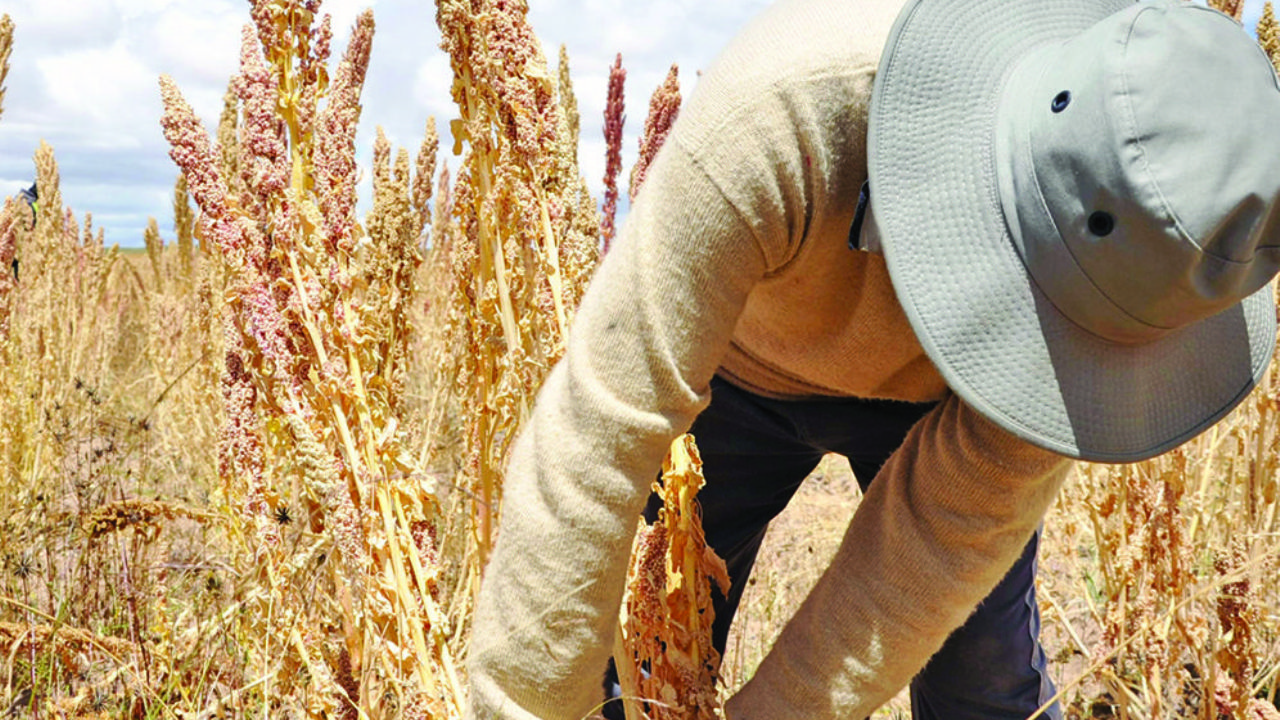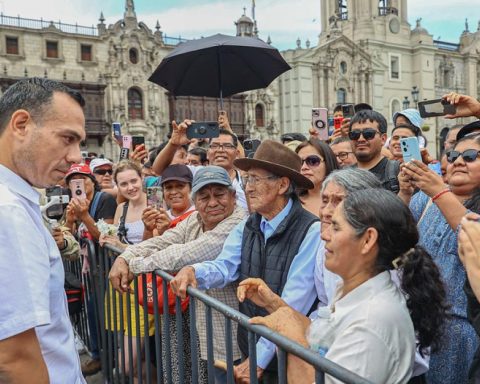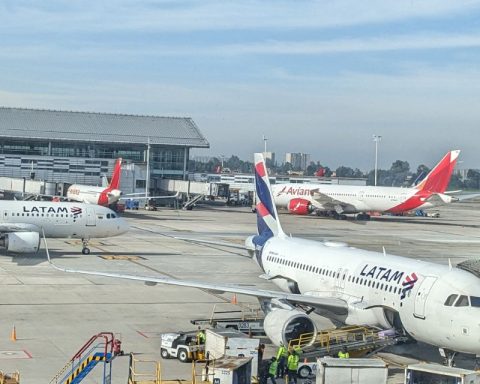Marco Belmonte / La Paz
Quinoa exports have decreased in value and volume for years due to lower prices and competition from new producers in the world, but the sector also warns that the product goes to Peru illegally, by smuggling.
According to figures from the National Institute of Statistics (INE), Bolivia in 2013 exported quinoa for 153.2 million dollars, and in 2014 for 196.6 million dollars, a record figure.
But last year sales fell to 61.7 million dollars, 33.2% less than in 2020. In contrast, Peru displaced the country as the first producer and exporter of the grain.
The manager of Sindan Organic SRL, Thania Huayllani, explained that Peru achieves more sales despite the fact that it does not produce the same royal quinoa as Bolivia, because it has better yields. It projects seven tons per hectare, while in the country barely half a ton per hectare.
National production has organic certification and a fair price certificate in the European Union, but that does not make national quinoa more competitive in markets such as the United States or China, he said.
He added that prices also fell and that influences the value exported, but another problem is that Bolivian quinoa is smuggled into Peru.
“Bolivian quinoa is smuggled into Peru, even Peruvians enter Bolivia and take the quinoa to export it as Peruvian,” he said.
He added that Peru covers the demand it has in the markets with Bolivian quinoa, since its production is not enough.
“There are no records, but raw materials cannot be exported to that country; since you can’t, it’s smuggled. There is no border control,” he said.
There are also no incentives for production or technology entering the Southern Altiplano.
Huayllani indicated that the production costs of Bolivian quinoa are higher because the work is manual and intensive, there is no machinery or technology, and they face droughts and frosts. In contrast, Peru has intensive crops with irrigation, pest control and machinery.
On the other hand, the neighboring country has a strong promotion in various fairs such as Biofach in Germany, where last year its stand was awarded as the best. On the other hand, in Bolivia the efforts are private and everything possible is done to get to these events with some companies.
The manager of the National Chamber of Exporters of Bolivia (Caneb), Marcelo Olguín, reported that sales fell 24% in volume and 33% in value, mainly in the United States.
The European Union market is also down, but it is more stable because organic quinoa is preferred.
More was sold to China, but it was not enough to keep exports stable.
There is also a greater supply of quinoa in the world and from countries like Spain and France, and that impacts demand.
To this is added, according to Olguín, that in Peru, despite the fact that the cultivated area is 67,000 hectares, its production is 100,000 tons per year, while in Bolivia the crops reach 115,000 hectares, but the offer is 70,000 tons.
In response to a questionnaire from Page Seven, the Vice Minister of Foreign Trade, Benjamín Blanco, reported that a factor that had an impact on exports was the 19% drop in price recorded last year.
He added that new producers such as Spain, the Netherlands, and China also began to proliferate, and that takes away the market from countries such as Bolivia and Peru, which are traditional producers.
In addition, in the case of Peru, he pointed out that since 2013 that country began intensive production and has two harvests a year of conventional quinoa production with crops in its highlands, mountains and coast, unlike the only harvest in Bolivia.
“It is a matter of quantity, but we cannot compare it with the quality of Bolivian quinoa, which has unique qualities because it is grown in Oruro, Potosí and La Paz,” he stressed.
He added that the neighboring country developed a robust logistics and distribution system, but does not gain anything by using Bolivian quinoa as if it were Peruvian because importers in the world do not charge tariffs.
“It is not a product with tariff protection that Bolivia does not have. But it is possible that to complete the export volumes contracted by Peru there is some flow that is going out to that market and that is exported as Peruvian, but we do not consider it to be something of great magnitude because there is a zero tariff for quinoa from both countries,” he said.
Policies
Blanco stressed that the Government wants the country to regain leadership in the production of quinoa and with this objective an industrial plant was launched with an investment of 60 million Bolivians and a production capacity of 7,000 tons per year. In addition, the factory will process quinoa flour, puffs and flakes to give greater added value to the grain.
“This plant is scheduled to export processed quinoa to the Chinese and Japanese markets. There are 31 million Bolivians to Germany with which this year starts. The plant will allow the industrialization of quinoa derivatives, it will be possible to take advantage of the saponin, produce inputs for the agricultural sector”, explained the authority.
Huayllani and Olguín agreed on the need to consolidate the denomination of royal quinoa and promote organic production that has market niches and better prices.
Blanco assured that work is being done in this direction and in the promotion and participation in fairs such as Expo Dubai.
An industrial plant is underway to give greater added value to Bolivian quinoa
vice Minister Benjamin White
$196.6
MILLIONS
were the exports
in value of quinoa in 2014,
later they descended.
















